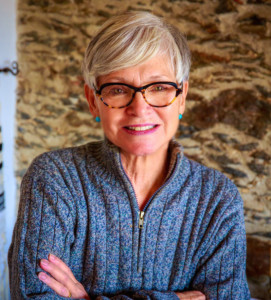“Listen to this!” Julie looked up from her Tablet screen and motioned for her husband, Sandy, to join her at the kitchen table. “Look here. At least we’re not alone. We won’t be the only ones without grandkids. It says right here that lots of young couples don’t want to have children.”
Sandy frowned and shook his head. “It’s so strange,” he said. “We have two grown children, both married and successful. I never thought in a million years that they’d decide not to have children. I’ll never be a Zayde,” Sandy said as tears welled up in his eyes. Julie rubbed his shoulders. “I know. No zayde for you and no bubby for me.”
Julie and Sandy are struggling to come to terms with a phenomenon that has affected grand parenting nationwide and the numbers don’t lie.
In her article “Solace for “Never to Be” Grannies,” (“Family,” Nov. 7, 2023), journalist Renee Langmuir unearthed what many would term troubling statistics. Ms. Langmuir found that in the US, 60.4% of women ages 25-29 and 38.5% of women ages 30-34 are childless –facts that personally hit home for Ms. Langmuir, a wannabe granny herself. She writes, “Grandparents have had an outsized role in my life. No, I was not blessed with four doting “Grans.” I only had three: one disinterested grandparent … and two who primarily spoke Yiddish and whose hearts were scarred by the Holocaust.”
Renee Langmuir recalls that the grandparents she valued most were the four who stepped in to help raise her daughter after Langmuir’s husband’s untimely death. As she recalls her own experiences with loving grandparents, Ms. Langmuir says “I never imagined that I would not be a grandmother.”
But like so many others, Ms. Langmuir learned to accept that she is now part of a club she never wanted to join. “A relative calls us the “infertile grandmothers,” – women who long for grandchildren but are learning to come to terms with the harsh reality that becoming a bubby or zayde was not to be.
Julie and Sandy can relate. “After our kids got married, in those early years we’d hint around about how ‘baby makes three’!” Finally our daughter sat us down and asked that we cut out the innuendo. She explained that she and her husband had made their careers their priority and that children just weren’t in the picture.”
Many adult children feel the same way. The Jewish website, SimpletoRemember.com reminds us that “Statistically we know that Jews marry later than other Americans and for Jewish women, late marriage means lower rates of fertility compared with other Caucasian women.” And a lower fertility rate translates into fewer births, resulting in many potential grandparents never realizing their dreams.
What follows is a pervasive sense of loss when parents of adult children realize that loving and caring for one’s own grandchildren is a joy that many potential bubbys and zaydes will never experience.
For Jewish families the sense of loss is compounded by tradition. Jews are profoundly connected to “l’dor v’dor” – “from generation to generation,” which emphasizes “Grandparents are much more than older relatives. Grandparents are links in the endless chain of generations, both stretching back in history and reaching forward to future generations. They are conduits of wisdom, love and support. Experts confirm what history already proves: loving grandparents are among the major positive shapers of Jewish identity.” (Doorways.org)
“Where do we go from here?” asks Sandy, Julie and so many other disappointed grandparents-in-waiting. Psychologists warn against pressuring adult children to explain their childless choice. Confrontations, judgmental comments, thinly veiled criticisms and even inappropriate jokes risk shattering family relationships and can lead to estrangement. Instead experts advise a more positive approach.
If grandchildren are not in the picture consider how you can create your own legacy by making a lasting contribution to society. If carrying on the family name is important, consider choosing one particular charity and regularly contribute in your own name.
If you long for a baby to cuddle, volunteer in a neonatal unit or become a foster grandparent. Use your nurturing skills to visit isolated seniors or, with your friends who are grandparents, organize an outing so that you can share in the joy of engaging with lively and curious little ones. Finally, if passing on Jewish traditions is important to you, volunteer in a Jewish day school, at Sunday school events or spend time with the children in a synagogue’s after school program.
For so many would-be grandparents not to have the joy of grandchildren has brought profound sadness, a sense of loss, and confusion as to how to cope. For them Ms. Langmuir advises acceptance when she emphasizes, “Ultimately, the decision about whether I will become a grandmother is 100% out of my control. It is up to my children.”
How to cope? Rabbi Nachman of Breslau said it best when he declared, “It is a great mitzvah to be happy” and “It is forbidden to be sad.” Rabbi Nachman’s teaching acknowledges that struggle and sadness are inevitable but even negative emotions can motivate us to accept life on life’s terms and carry on.

